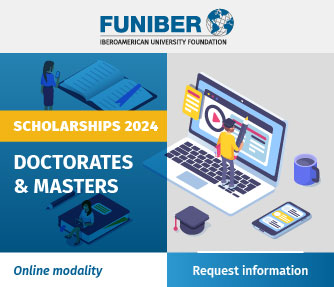Impact on physics learning with the use of PHET simulators, a look at the solution of electrical circuits
Published Apr 26, 2023
Abstract
Starting from the use of PhET simulators, which in principle is used as a complementary resource or as the foundation of a theoretical-practical class session (Gallego Joya, 2022), it is important to see the impact on the development of class sessions mediated by this type of tools used recurrently in physics courses at the high school and university levels. The relevance of the concepts would be reflected in the results of the tests and general evaluations of each course, according to the programming of each curriculum respectively. Based on the different moments in which the notions are evaluated, according to the curriculum of the physics courses in the two educational institutions of reference, the evaluation results obtained are recorded and with time, they are continuously retaken as part of the academic process, and it is there where their impact is evidenced, in the way in which new concepts are assimilated starting from preconceptions, or previously obtained concepts, in this case, those of Electrical Circuits such as Ohm's Law and Kirchhoff's laws, which are fundamental to approach other electromagnetism topics that are seen later and to evaluate the impact of their use in teaching.
Article Details
How to Cite
Download Citation
Downloads
References
Bandoy, J. V., & Pulido, M. T. (2015). The Effectiveness of using PHET Simulations for Physics Classes: A Survey. https://www.researchgate.net/publication/282219928
Gallego Joya, L. (2022). Evaluación del simulador PHET como estrategia para el aprendizaje de la gravitación en física en la educación media y universitaria. MLS Inclusion and Society Journal, 2 (1), 107–120. https://doi.org/10.56047/mlsisj.v1i1.1249
McKagan, S. B., Perkins, K. K., Dubson, M., Malley, C., Reid, S., LeMaster, R., & Wieman, C. E. (2008). Developing and researching PhET simulations for teaching quantum mechanics. American Journal of Physics, 76(4), 406-417. https://doi.org/10.1119/1.2885199
Najib, M. N. M., Md-Ali, R., & Yaacob, A. (2022). Effects of Phet Interactive Simulation
Activities on Secondary School Students’ Physics Achievement. South Asian Journal of Social Science and Humanities, 3(2), 73–78. https://doi.org/10.48165/sajssh.2022.3204
Perkins, K., Adams, W., Dubson, M., Finkelstein, N., Reid, S., Wieman, C., & LeMaster, R. (2006). PhET: Interactive Simulations for Teaching and Learning Physics. The Physics Teacher, 44(1), 18–23. https://doi.org/10.1119/1.2150754
Sandoval, M., & Mora, C. (2009). Modelos erróneos sobre la comprensión del campo eléctrico en estudiantes universitarios. Am. J. Phys. Educ, 3(3). http://www.journal.lapen.org.mx
Villegas, M., & Benegas, J. (2020). Aprendizaje conceptual en un curso de física general basado en estrategias de aprendizaje activo. Revista de Enseñanza de la Física, 32, 345-354.
Wieman, C., Adams, W., Loeblein, P., & Perkins, K. (2014). Teaching physics using PhET
simulations. http://phet.colorado.edu/teacher_ideas/contribution-guidelines.php
Zúñiga-Meléndez, A., Durán-Apuy, A., Chavarría-Vásquez, J., Gamboa-Araya, R., Carballo- Arce, A. F., Vargas-González, X., Campos-Quesada, N., Sevilla-Solano, C., & Torres- Salas, I. (2020). Diagnosis of training needs of teachers of biology, chemistry, physics, and mathematics, in disciplinary, pedagogical areas, and use of technologies to promote scientific thinking skills. Revista Electronica Educare, 24(3), 1–32. https://doi.org/10.15359/REE.24-3.23
















